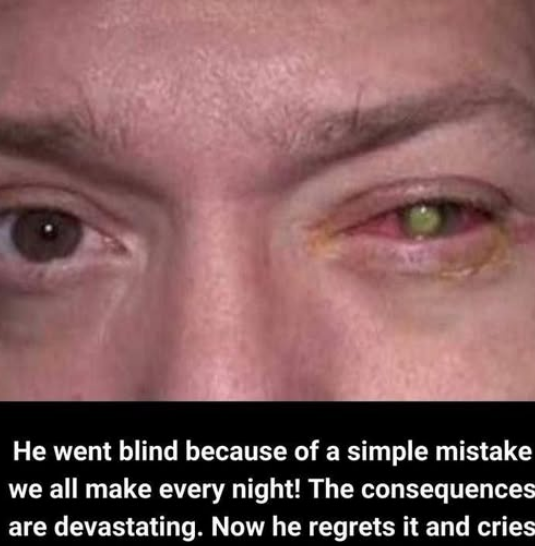Brian Groeschen, a 39-year-old man from Cincinnati, didn’t think twice about sleeping in his contact lenses one night. When he woke up with a scratchy eye, he assumed it was just minor irritation. However, a few days later, he faced a life-altering diagnosis: a severe corneal ulcer caused by the aggressive bacterium Pseudomonas aeruginosa. This rapidly progressing infection had developed beneath the lens he wore overnight, putting his vision at serious risk.
Although his lenses were advertised as safe for extended wear, ophthalmologists like Dr. William Faulkner caution that sleeping in any contacts—whether “breathable” or not—significantly increases the chance of serious eye infections. Contact lenses limit the oxygen supply to the eye and create an ideal environment for bacteria to grow. Brian’s case was especially severe, and despite treatment, the infection left scars on his cornea, necessitating a transplant and impacting both his daily routine and career.
The American Academy of Ophthalmology strongly recommends never wearing contacts to bed. Simple hygiene measures—washing hands before handling lenses, using fresh disinfecting solution, regularly replacing lens cases, and never reusing old solution—can prevent most infections. But the most crucial rule remains: always remove your lenses before sleeping, unless specifically instructed otherwise by an eye care professional.
Brian’s experience is a powerful reminder that one careless night can cause irreversible harm. Vision is something easily taken for granted—until it’s threatened. Practicing safe contact lens habits isn’t just advisable; it’s essential for protecting your eyesight.
